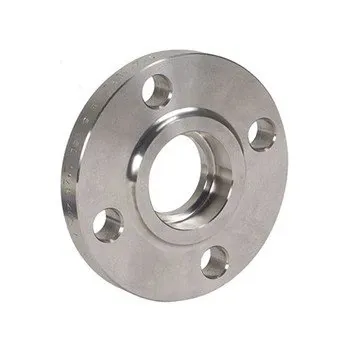-
Cangzhou Yulong Steel Co., Ltd.
-
Phone:
+86 13303177267 -
Email:
admin@ylsteelfittings.com
- English
- Arabic
- Italian
- Spanish
- Portuguese
- German
- kazakh
- Persian
- Greek
- French
- Russian
- Polish
- Thai
- Indonesian
- Vietnamese
- Zulu
- Korean
- Uzbek
- Hindi
- Serbian
- Malay
- Ukrainian
- Gujarati
- Haitian Creole
- hausa
- hawaiian
- Hebrew
- Miao
- Hungarian
- Icelandic
- igbo
- irish
- Japanese
- Javanese
- Kannada
- Khmer
- Rwandese
- Afrikaans
- Albanian
- Amharic
- Armenian
- Azerbaijani
- Basque
- Belarusian
- Bengali
- Bosnian
- Bulgarian
- Catalan
- Cebuano
- China
- China (Taiwan)
- Corsican
- Croatian
- Czech
- Danish
- Esperanto
- Estonian
- Finnish
- Frisian
- Galician
- Georgian
- Kurdish
- Kyrgyz
- Lao
- Latin
- Latvian
- Lithuanian
- Luxembourgish
- Macedonian
- Malgashi
- Malayalam
- Maltese
- Maori
- Marathi
- Mongolian
- Myanmar
- Nepali
- Norwegian
- Norwegian
- Occitan
- Pashto
- Dutch
- Punjabi
- Romanian
- Samoan
- Scottish Gaelic
- Sesotho
- Shona
- Sindhi
- Sinhala
- Slovak
- Slovenian
- Somali
- Sundanese
- Swahili
- Swedish
- Tagalog
- Tajik
- Tamil
- Tatar
- Telugu
- Turkish
- Turkmen
- Urdu
- Uighur
- Welsh
- Bantu
- Yiddish
- Yoruba

Nov . 12, 2024 14:38 Back to list
stainless steel pipe
The Versatility and Advantages of Stainless Steel Pipes
Stainless steel pipes have become an essential component across various industries due to their exceptional properties and versatility. Known for their strength, durability, and resistance to corrosion, stainless steel pipes are widely used in applications ranging from construction to manufacturing, food processing, and oil refining. This article will explore the characteristics of stainless steel pipes, their benefits, applications, and why they are a preferred choice in many industries.
Characteristics of Stainless Steel Pipes
Stainless steel is an alloy primarily made of iron, chromium, and small amounts of carbon, making it remarkably resilient. The chromium content, typically exceeding 10%, forms a passive layer of chromium oxide on the surface, providing superior resistance to rust and corrosion. This natural resistance not only extends the lifespan of the pipes but also reduces maintenance costs over time.
Stainless steel pipes come in various grades, with the most common being 304 and 316. Grade 304 is often used in food handling and cooking equipment because of its high resistance to oxidation. In contrast, Grade 316 is preferred in marine environments due to its higher nickel content and the addition of molybdenum, which enhances its corrosion resistance against chlorides.
Benefits of Stainless Steel Pipes
One of the most significant advantages of stainless steel pipes is their longevity. Unlike other materials such as carbon steel, which can rust and fail over time, stainless steel maintains its integrity under various environmental conditions. This durability translates to lower replacement costs and less downtime, making it an economically sound choice for many industries.
Another crucial benefit is their hygienic properties. Stainless steel does not harbor bacteria and is easy to clean, making it ideal for industries where cleanliness is paramount, such as food and beverage processing, pharmaceuticals, and healthcare. The non-reactive nature of stainless steel ensures that it does not leach chemicals into products, guaranteeing safety and quality.
stainless steel pipe

Moreover, stainless steel pipes are highly adaptable
. They can be fabricated into different shapes and sizes, allowing for tailored solutions in various installations. Whether in residential plumbing or complex industrial systems, stainless steel can accommodate specific requirements while maintaining a robust structure.Applications of Stainless Steel Pipes
Stainless steel pipes find applications across numerous sectors. In the construction industry, they are utilized for structural support, railings, and architectural features due to their aesthetic appeal and strength. They can withstand extreme weather conditions, making them suitable for outdoor applications.
In the oil and gas sector, stainless steel pipes are essential for transporting crude oil, natural gas, and refined products. Their strength and resistance to high temperatures and pressures ensure safe and reliable operation in challenging environments.
The food processing industry also extensively uses stainless steel pipes for fluid transport, as they meet stringent hygiene standards. They are frequently found in dairy processing, breweries, and beverage production, where maintaining product integrity is crucial.
Additionally, in the pharmaceutical sector, stainless steel pipes are employed in the manufacturing process and for transporting raw materials and products. The non-reactive surface ensures that the integrity of sensitive formulations is maintained throughout production.
Conclusion
In conclusion, stainless steel pipes are a vital component in many industries thanks to their durability, corrosion resistance, and hygienic properties. Their ability to adapt to various applications, from construction to food processing and oil transport, makes them an invaluable material. As industries continue to evolve and prioritize safety and efficiency, the demand for stainless steel pipes is expected to remain strong. Investing in high-quality stainless steel piping solutions not only ensures operational reliability but also contributes to long-term cost savings, making them a smart choice for any project. Whether for residential, commercial, or industrial applications, stainless steel pipes are the backbone that supports modern infrastructure and industry alike.
Latest news
-
ANSI 150P SS304 SO FLANGE
NewsFeb.14,2025
-
ASTM A333GR6 STEEL PIPE
NewsJan.20,2025
-
ANSI B16.5 WELDING NECK FLANGE
NewsJan.15,2026
-
ANSI B16.5 SLIP-ON FLANGE
NewsApr.19,2024
-
SABS 1123 FLANGE
NewsJan.15,2025
-
DIN86044 PLATE FLANGE
NewsApr.19,2024
-
DIN2527 BLIND FLANGE
NewsApr.12,2024
-
JIS B2311 Butt-Welding Fittings LR/SR 45°/90° /180°Seamless/Weld
NewsApr.23,2024











